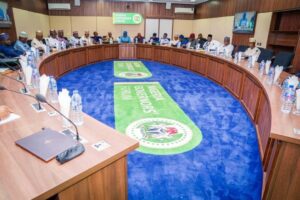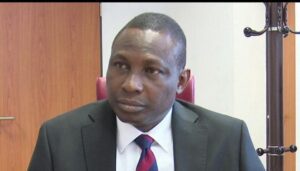


Nigeria’s broad money supply hits record high of N93.72trn in January 2024
Nigeria’s broad money supply has reached a historic high of N93.72 trillion as of January 2024, marking a significant increase from the N53.14 trillion recorded in January 2023.
This represents a year-on-year growth of N40.48 trillion, a 76 percent surge. Compared to the preceding month of December 2023, which stood at N78.74 trillion, this represents a robust 19 percent increase, equivalent to N14.98 trillion.
The Central Bank of Nigeria (CBN) has released these figures in its comprehensive money and credit statistics report.
The upward trajectory of Nigeria’s broad money supply (M3), which encompasses both net foreign assets and net domestic assets, has been accelerating in recent years.
However, this trend intersects with an array of economic challenges, including surging inflation rates, mounting pressures on the naira’s exchange rate, and a downward trajectory in interest rates.
The increase in the money supply could lead to a potential surge in inflation, posing a significant threat to the purchasing power of Nigerians.
Additionally, an inflated money stock typically correlates with a decline in interest rates, particularly in environments characterized by a dearth of viable investment prospects.
This dynamic may render Nigerian investment vehicles less attractive to global investors, which is a matter of grave concern considering Nigeria’s imperative for sustained dollar inflows.
Despite a significant increase in the money supply, Nigeria’s economic growth has been slow, with projected growth rates for 2024 among the lowest in West Africa.
This disparity is concerning as the money supply is growing at a much faster rate than the economy. Inflation has also been a major issue, with a high headline inflation rate in January 2024.
The Central Bank of Nigeria’s Monetary Policy Committee (MPC) will soon meet to discuss the implications of the expanded money supply on their decision-making, particularly regarding the Monetary Policy Rate (MPR). These discussions are crucial for Nigeria’s economic stability and growth.
It is worth noting that the increase in the money supply has occurred despite the CBN’s efforts to tighten monetary policy and reduce excess liquidity. The CBN has gradually raised the MPR over the past year, but there may be a conflict between the current Governor’s stance on interest rate hikes and President Bola Tinubu’s plans to reduce interest rates.
This could potentially lead to a clash between the government’s economic objectives and the CBN’s tightening monetary policy.



